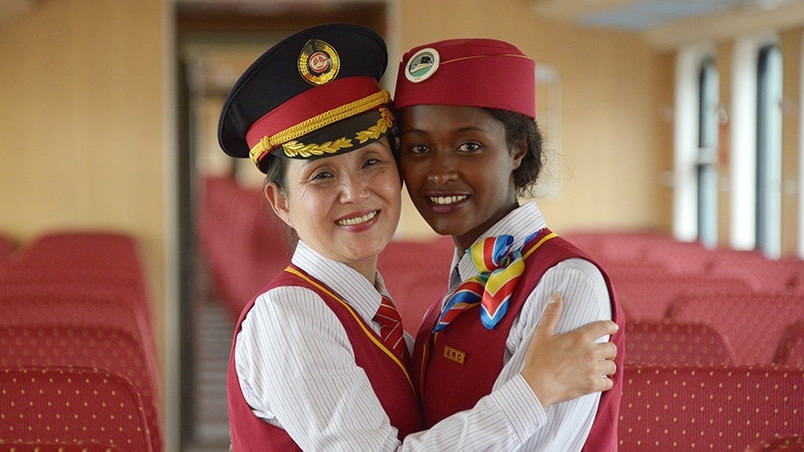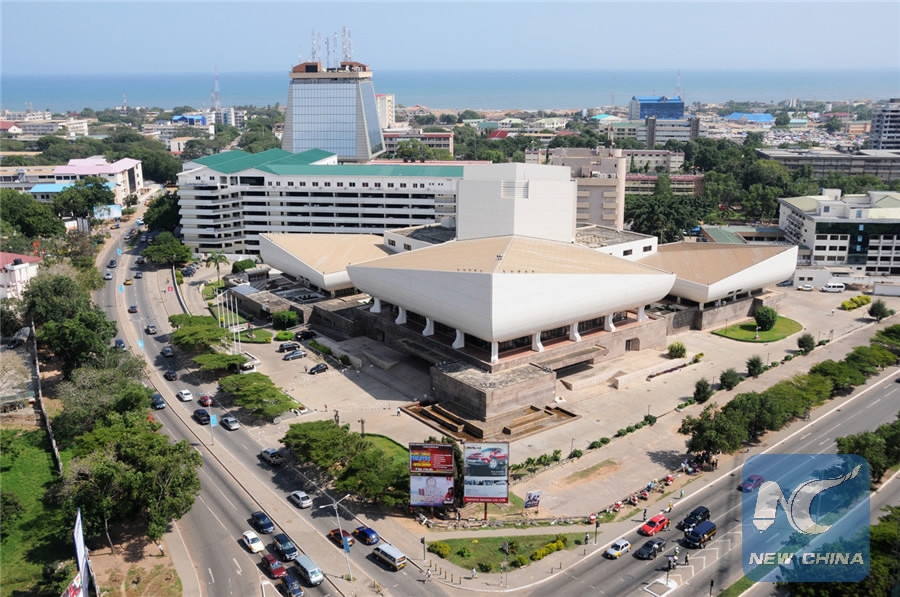
The latest briefing paper by the China-Africa Research Initiative (CARI) at John Hopkins University of School of Advanced International Studies (SAIS) unequivocally belied the Western media propaganda that Beijing was responsible for the debt distress of African countries, stating the borrowed loans were based on the "wish lists" of the regional governments and labeled reports about lack of transparency in Chinese financing or it did not provide systematic data on loans "often inaccurate."
Using Debt Service Suspension Initiative (DSSI) from the World Bank, which noted China's share of public and publicly guaranteed (PPG) debt for 40-low African borrowers roughly made 22 percent in 2018, the Washington-based research program said that Beijing was a small lender in over half of the 22 countries experiencing debt crisis and their debt problems were not made in China.
Interestingly, China only accounted for a quarter or more of all PPG debt in seven of those 22 countries in Africa. With four of them having already negotiated debt restructuring with Chinese lenders in 2018 and 2019, the trumped-up charges about Beijing's so-called "debt-trap diplomacy" to "colonize" the region was a last-gasp effort to foment its African allies.
Over the past few years, there has been a piercing buzz, mostly in the West, the African nations were vulnerable to Chinese extensive infrastructure lending that allegedly seek to gain control on continent's key ports and would expose the continent to its unsustainable debt-load, with some describing the multi-billion dollar Belt and Road Initiative (BRI) a "Trojan horse."
CARI itself impugned an article by The New York Times in May 2020 that claimed borrowers of Chinese loans "put up ports, mines, and other crown jewels as collateral." It said to witness only one such case in Chad built on collateralized lending, a form of project in which repayment is secured not through existing assets but future receivables – that too because of Chinese export credit insurer's refusal to insure the loan over associated risks.
While the paper noted that Chinese lending has relatively been modest in more than half of those at highest risk of a debt crisis, making up less than 15 percent all debt, the striking attributes of financing from Beijing – including low-interest rates and a grace period of 10 to 15 years – was a strong push-back to the westernized conjured arguments.
After the Covid-19 slashed GDP growth of the locomotive of the world economy, China, in the first few months of the year, it still reached out to support its African partners and announced to cancel interest-free government loans of the relevant countries within the framework of (Forum of China-Africa Cooperation (FOCAC).

The Chinese-built Ghana National Theater in Accra, capital of Ghana, September 15, 2014. /Xinhua
The Chinese-built Ghana National Theater in Accra, capital of Ghana, September 15, 2014. /Xinhua
It was visibly an unprecedented show of solidarity and realization of the economic twinges of it regional allies by Beijing – which, in a single stroke, simultaneously jostled away from the cesspool of assertive elements in the western media as well, promulgating false and misleading news about China's cooperation with Africa.
The African proclivity toward Beijing should be grossly viewed in the backdrop of China's economic rise and development over the past decades. Chinese unflagging determination, to transform the lives of its people and build a middle-income society through poverty alleviation, fits perfectly in the long-term African plan to transmogrify its feeble destiny.
Highlighting Beijing's economic role internationally, Reuters' market analyst John Kemp last year said there is no scenario in which the global economy can achieve healthy growth unless five economies, especially China, see their output and incomes rise strongly. He further emphasized on Chinese cyclic position that allowed a rapidly growing middle-class to ramp up domestic demand for air travel, tourism, oil, motor vehicles, and other industrial products.
It is usually held when China sneezes, the whole world catches a cold, but for Africa, it is something like shifting to the ventilator. It was lately re-evidenced after the African Development Bank (AfDB) warned the continent is facing grim threats of losing about 190 billion U.S. dollars in GDP, adding another 49 million people into poverty and fizzling out of additional 25 to 30 million jobs over the coronavirus outbreak.
The tirade of notional hearsays about self-proclaimed Chinese economic invasion in the continent, therefore, takes a hard beat. By just a tip of its hand, from "debt trap" to debt-relief, Beijing putrefied all the bigoted diffusion and demonstrated its economic interests didn't supersede the region's prosperity. The move instead indicated China's keenness to lift infrastructure, increase trade, and improve the wellbeing of the most deprived people in the continent through its investments and concessional loans.
Beijing does not gauge its amity with Africa in tonnes of cargos or billions of dollars. For China, the datum-points for a stable and durable bilateral relationship are mutual respect, international diplomatic and political congruence, and win-win cooperation. By endorsing the newly introduced Chinese legislation in Hong Kong, the African governments reaffirmed that they were well aligned with China and had their all-out backing to quell violence and promote peace in the autonomous region.
As China supports the African Continental Free Trade Area (AfCFTA) to enrich continent's connectivity and brace industrial supply chains and explores new areas to such as digital economy, smart city, clean and fifth-generation to advance Africa's development – the armor-plated Afro-Sino bonds would only be walled to protect their longstanding alliance from the virulent western efforts.
(If you want to contribute and have specific expertise, please contact us at opinions@cgtn.com.)